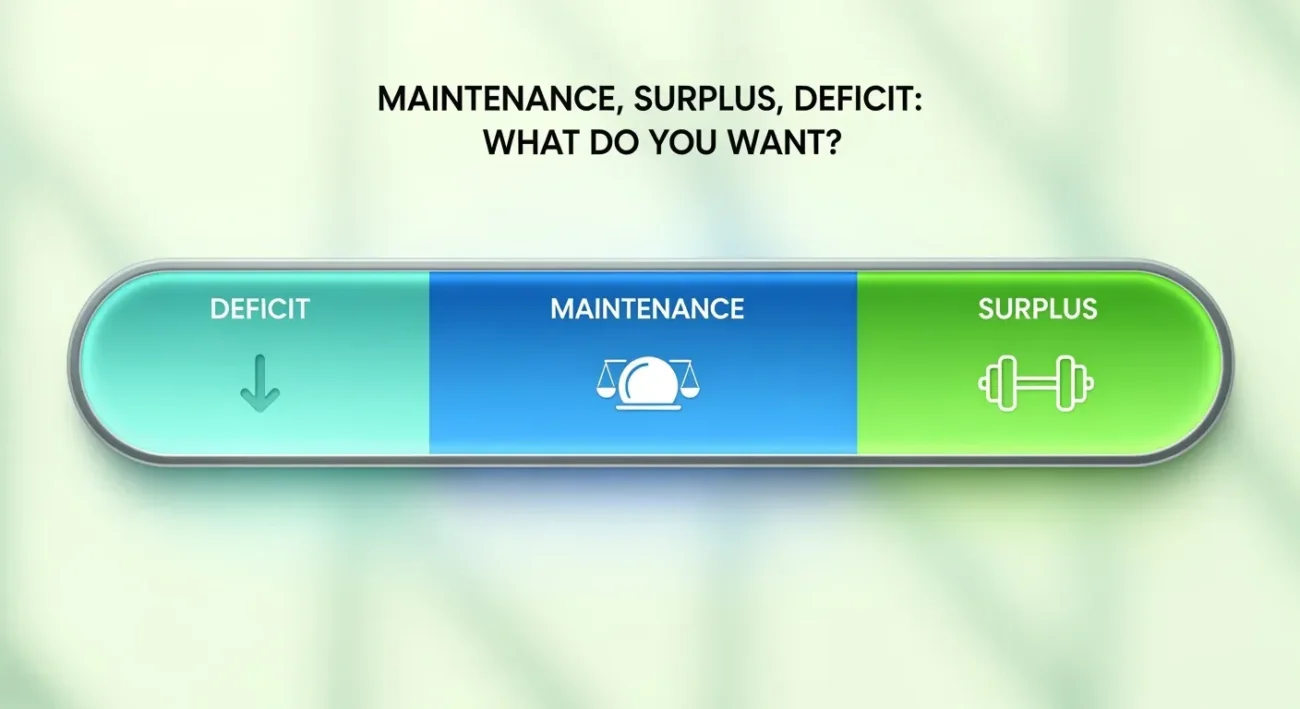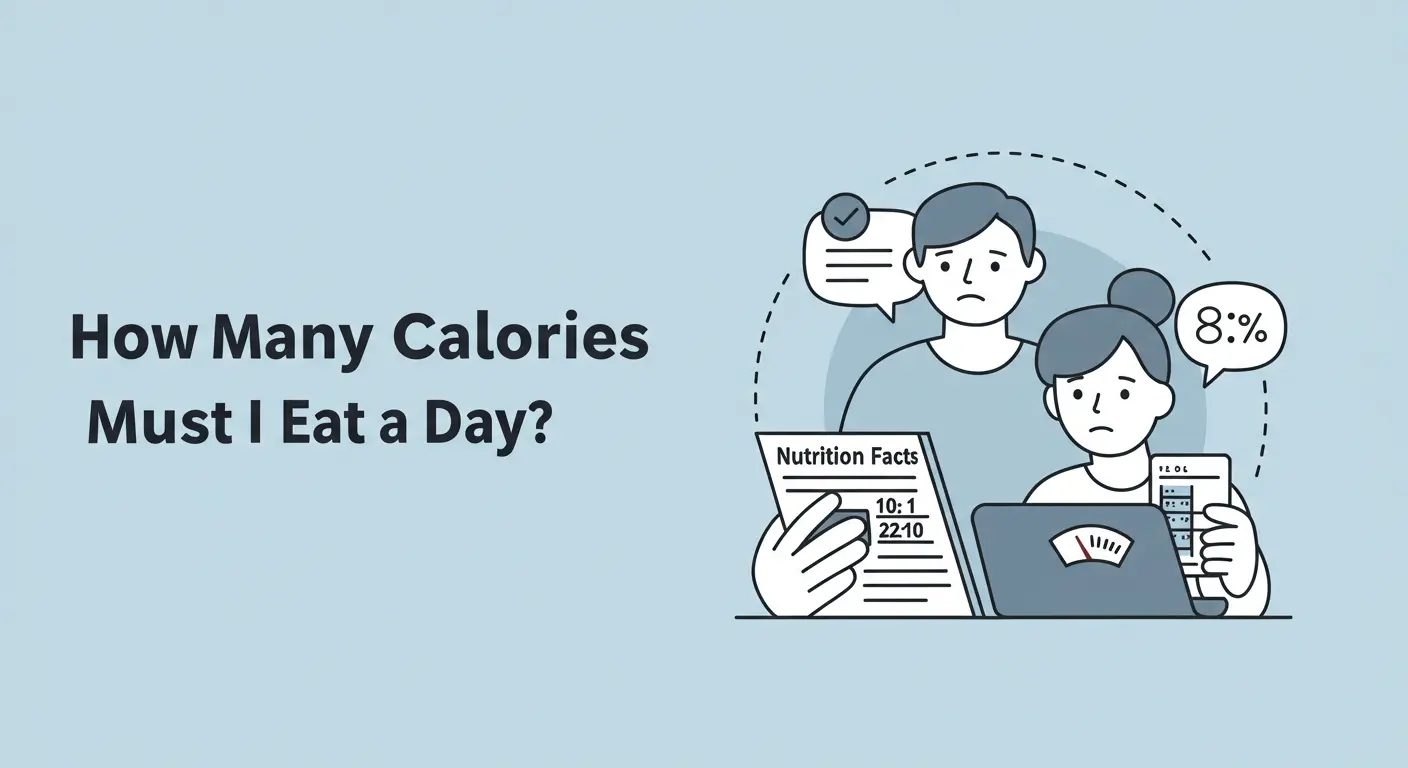You’ve probably asked yourself this question at least once: “How many calories must I eat a day” Maybe you were staring at a slice of pizza, debating if it would ruin your week. Or maybe you’ve been trying to gain some healthy weight, and you’re not sure if another peanut butter sandwich is the right move.
Here’s the thingvcalories aren’t scary. They’re not your enemy, and they’re not some mysterious number locked away in a fitness guru’s spreadsheet. Calories are just energy.
Calories in Simple Terms
A calorie is just a unit of energy. Imagine your body as a phone battery. high protein foods charges it. Moving, thinking, breathing, and even sleeping drain it. If you charge more than you drain, the extra gets stored (hello, fat tissue). If you drain more than you charge, you dip into stored energy (that’s how fat loss happens).
Here a Ballpark Average Needs for Most Adults
If you want a rough idea without any math, here are the typical daily calorie ranges for adults:
- Most women need 1,600–2,400 calories per day, depending on age and activity.
- Most men need 2,200–3,000 calories per day.
That’s a huge range, right? Because “most people” includes a 25-year-old marathon runner and a 55-year-old office worker. Clearly, one number won’t work for everyone. Which is why you’ve got to personalize.
Why You Are Not Average How to Find Your Number
Here’s where things get personal.
Your daily calorie needs depend on two big things:
- Basal Metabolic Rate (BMR): This is your “survival burn.” Even if you binge watched Netflix all day, your body still burns calories just to keep your heart pumping and brain firing.
- Total Daily Energy Expenditure (TDEE): This is your BMR plus everything else walking, exercising, chasing kids, doing chores.
You don’t need to memorize formulas like Harris Benedict or Mifflin-St Jeor (unless you love algebra). The easiest way, Use an online calorie calculator. Plug in your age, sex, height, weight, and activity level, and boom you’ve got a starting point.
Remember: it’s just a starting point. No calculator knows your exact metabolism. That’s where testing and tweaking comes in.
Maintenance, Surplus, Deficit: What Do You Want?

Once you’ve got your daily calorie estimate, the fun begins.
- Maintenance: Eat about that number, and your weight should stay roughly the same.
- Deficit (weight loss): Eat 10–25% fewer calories than maintenance. So if your TDEE is 2,200, eating 1,800–2,000 should help you lose gradually.
- Surplus (weight gain/muscle building): Eat 100–300 calories more than maintenance. Any more than that, and you’ll gain fat faster than muscle.
Think of your calorie target as a dimmer switch, not an on/off button. A little up, a little down it’s all about direction.
Your Weekly Game Plan The Zigzag (Calorie Cycling)
Here’s a strategy most blogs don’t mention: calorie cycling (or “zigzagging”).
Instead of eating the exact same calories every day, you vary them. Maybe on workout days you eat 2,300, on rest days you eat 1,900, and by the end of the week your average is still around 2,100.
- It keeps your metabolism from slowing down.
- It gives you flexibility (higher days for social events, lower days for desk-bound afternoons).
- It feels less like a diet and more like real life.
This method can be a sanity saver when long-term tracking starts to feel robotic.
When the Math Goes Wrong:
Okay, time for some honesty. Even the best plans can flop. Here’s why:
- Calculators are estimates. They can be off by as much as 30%. Don’t panic it just means you’ll need to adjust.
- Metabolism adapts. If you cut calories too hard, your body slows down. You feel tired, cranky, and progress stalls.
- We underestimate food. That “tablespoon” of peanut butter? Yeah, it was three. Guilty.
The fix: track progress, not perfection. If the scale, measurements, or mirror aren’t moving in the right direction after a few weeks, adjust by 100–200 calories. Small tweaks win.
Steer Clear of Extremes
It’s tempting to slash calories when you want fast results. But here’s the deal:
- Women generally shouldn’t eat less than 1,200 calories/day.
- Men generally shouldn’t eat less than 1,500 calories/day.
Anything lower, and you risk nutrition deficiencies, fatigue, muscle loss, and even long-term harm.
Your body isn’t a math equation it’s a living system. Treat it kindly.
Quick Reference Table: Rough Calorie Needs by Sex, Activity, Age
| Sex | Activity Level | Approx. Calories (Maintenance) |
|---|---|---|
| Female | Sedentary | 1,600–1,800 |
| Female | Moderately active | 1,800–2,400 |
| Female | Very active | 2,200–2,600+ |
| Male | Sedentary | 2,200–2,400 |
| Male | Moderately active | 2,500–3,000 |
| Male | Very active | 2,800–3,200+ |
These are averages your unique needs may differ. Use them as a guide, not gospel.
Watch, Adjust, Repeat
The secret isn’t in finding the perfect calorie number it’s in watching how your body responds and adjusting.
- Weigh yourself a few times a week.
- Track your average over time, not day by day.
- Adjust intake up or down if you’re not trending in the right direction.
It’s not failure if the first number doesn’t work. It’s just data.
Bonus Tips for Energy, Health, and Gut Happiness
Calories matter, but food quality matters too.
- Load up on fruits, veggies, lean protein, whole grains, and healthy fats.
- Keep added sugars and fried foods as “sometimes treats.”
- Stay hydrated your body confuses thirst with hunger more than you think.
- Remember: eating well isn’t punishment. It’s literally fuel to feel good.
The World Health Organization reminds us: balance energy in and out, limit added sugar, and base meals around whole, nutrient-dense foods. Do that most of the time, and the occasional donut won’t derail you.
FAQs
How can I tell if my calories are right?
Check the trend. If your weight or measurements are moving toward your goal steadily (not drastically), you’re spot on.
Can I eat below 1,200 calories a day?
Not safely. Unless your doctor specifically prescribes it, it’s too low to meet nutrient needs.
Is calorie counting healthy long term?
It can be a helpful tool, but it’s not forever. Use it for awareness, then shift to portion habits and mindful eating.
Why do calorie calculators disagree?
They use different formulas. None are exact. Think of them as your starting point, not your final answer.
Will calorie cycling (zigzagging) confuse my body?
Nope. In fact, it may help you stick with your plan longer. Your body cares about your weekly average, not the daily ups and downs.
The Bottom Line
Figure out your baseline with a calculator, decide if you want to maintain, lose, or gain, and adjust by small amounts until your body responds. Stay patient, avoid extremes, and focus on food quality as much as calorie counts. Calories aren’t the enemy they’re just fuel. Use them wisely, and yes, you can still enjoy that slice of pizza without guilt.

